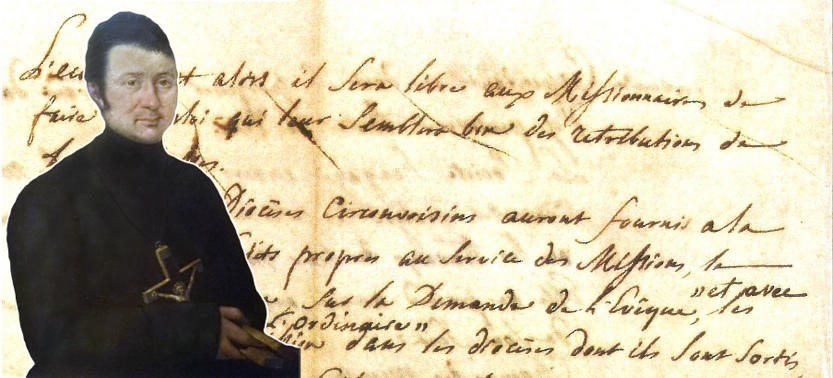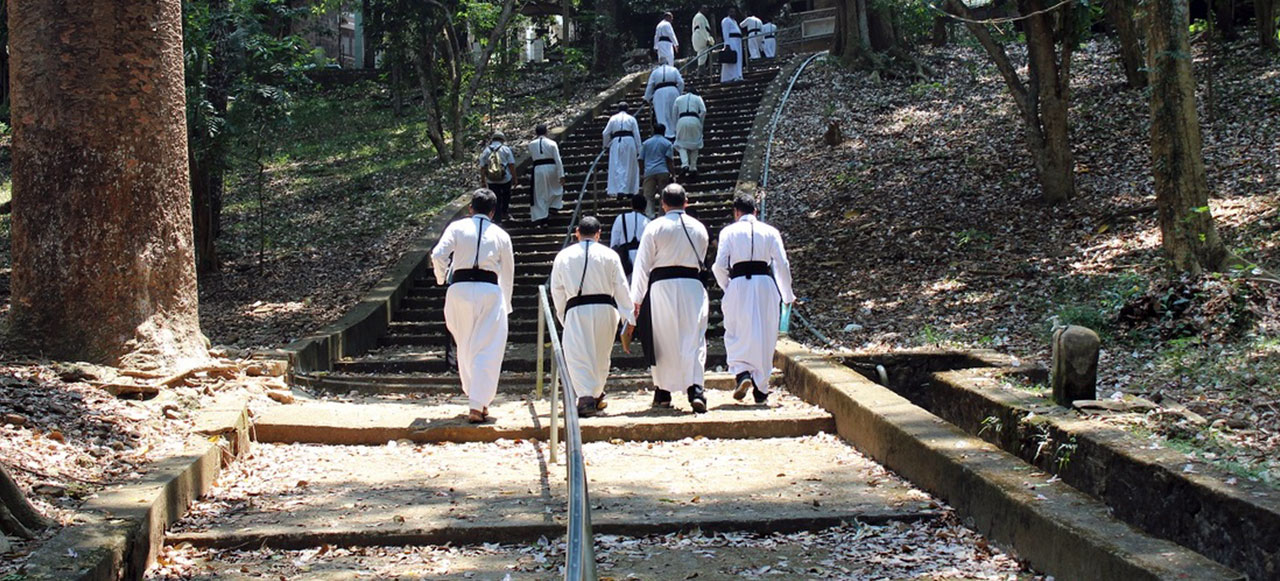Meditations to prepare for the anniversary of the first vows of November 1, 1818
General Committee of the Oblate Brothers
“To be a Christian is a call of love, a call of friendship”. (Pope Francis, 2013)
“The figure of Abraham reminds us that no one is a Christian purely by chance – no one. There is a call by name, with a promise: ‘Go forth, I am with you. I am walking beside you’. Jesus also promised on Ascension Day: ‘I will be with you all days’. God accompanies humanity, God calls us by name, God promises a posterity. This is the security of the Christian: it is not an accident, it is a call – a call that beckons us onward. To be a Christian is a call of love, of friendship – a call to become a child of God, a brother, a sister of Jesus, to become fruitful in the transmission of this call to others, to become an instrument of this call. […] If there are problems in a Christian’s life and difficult times, there is always this security: the Lord has called me, the Lord is with me, the Lord has promised me. God is faithful and cannot deny Himself. He is Faithfulness, itself. Even though every person is a sinner, each must move on with the Lord – going forward with this promise that he has made, with this promise of fruitfulness … He will never forsake us. This Christian certainty will do us good.”[1]
Father Tempier was born in Saint-Cannat on April 1, 1788, to a family of honest farmers, in which the Catholic faith was lived. He was baptized the day after his birth, with the names of Henri and Francois de Paul.
France quickly went through the painful ordeals of the Revolution, the Terror and the Civil Constitution of the Clergy.
We know the identities of the first companions of the Founder who, at the risk of their lives, devoted themselves to the preservation of the faith.[2]
In Aix, following the Civil Constitution of the Clergy, there was a division between constitutional priests and those who refused to swear to it. The church of Milles, a parish where the Tempier family owned a farm, was conducted by these rebel priests; the church was even closed by decree.
François de Paul and two of his friends, Michel Figuière and Jean Joseph Reynaud, who also became priests, were preparing for First Communion. They could have joined with other children in the cathedral of Aixl which was run by constitutional priests, but their way was quite different. In 1860, Father Tempier confided to the scholastics of Montolivet:
“… on a beautiful morning in 1799 … in a modest room on one of the beautiful streets of Aix … they were between ten and twelve years old. There was no singing, no musical accompaniment, perhaps some flowers, and a more spic and span arrangement: that was all that our three friends could offer to God who was coming to visit them. They copiously made up for their poverty, however, by receiving Jesus Christ into hearts, filled with the greatest generosity. Their prayer of thanksgiving was long and fervent. God alone knows what sentiments of love and gratitude these three young hearts expressed to him; we do know, however, what reply God gave to their humble and ardent prayer. When the arose from prayer, the three friends, without any prior consultation or mutual confiding in each other, went to their director and urgently requested that he teach them Latin; they wanted to become priests.”[3]
____________________________________________________________________
As you read this touching testimony, we invite you to reread an episode from your own childhood or adolescence to discover in it the traces of God’s work:
Going further – I look at my life with the eyes of God:
- I choose an event that marked my childhood and my youth.
- I call to mind what good I received from it which leads me to say thank you to the Lord.
- I look at what was a source of sadness or discouragement and I ask the Lord to help me understand why I acted as I did and I ask his forgiveness.
- Through this event in my life, I may ask the Lord’s help.
- I end with the Our Father or a prayer of trust, placing myself in the hands of God.
***Please note that the footnotes cited in this article are taken from French texts and not from their corresponding English versions.
[1] Extrait de l’homélie matinale du Pape François à Sainte-Marthe – 25 juin 2013
[2] Cf. les ordinations clandestines des pères Mie et Maunier.
[3] François de Paul Henry Tempier, collection Ecrits oblats II,1 Rome 1987, pp 14-15. Pour aller plus loin : témoignages, document 1 collection Ecrits oblats II,1 Rome 1987, pp 213-215.


